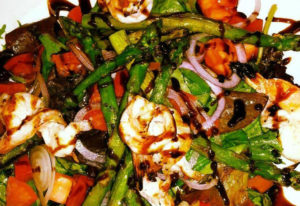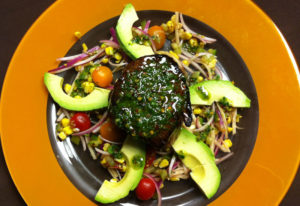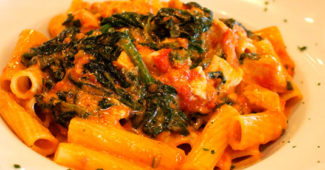 |
 Adam Morsch is a personal trainer, certified by the International Sports Science Association, and a Nutritional Adviser with certifications from the Shaw Academy. He is the owner of Morsch Fitness where he trains private clients in Huntington. He is currently fundraising for Autism Awareness by preparing to Kayak around Long Island next summer. He can be contacted at trainer@morschfitness.com |
| Gluten is a protein found in cereal grains such as wheat and its close relatives such as, rye and barley. It is a combination of 2 different proteins: gliadin and glutenin which acts as a binder to foods, helping it to keep its shape and texture. To the 1 in 133 Americans that have Celiac Disease gluten is hazardous. Celiac Disease carries a broad spectrum of symptoms that range from skin rashes, intestinal problems and stomach issues, to neurological difficulties. Gluten is also dangerous to those allergic to wheat. The American College of Allergy, Asthma and Immunology claim that less than 1 in 200 people suffer from an allergy to wheat, most are children and at least 2/3rds will outgrow it before they reach adolescence. Supermarket aisles and health food stores are packed with gluten free products. Internet blogs and celebrities preach how gluten free is the best new thing. People are using gluten free diets to try to fix everything from autism, ADHD to migraines and there are those who also think gluten free is the way to weight loss. Is there any truth behind all this? The answer is no; let me explain why. If you do not have Celiac Disease or a wheat allergy, going gluten free is stopping you from eating a wide variety of foods. Many people eating gluten free have a high chance of ending up with a vitamin deficiency especially: vitamin B, iron, calcium, thiamine, riboflavin, niacin, and folate. There are so many foods gluten is added to, one wouldn’t even think of: frozen vegetables, sauces, fortified foods that have vitamins added to them; the list is long. Gluten free food often has added sugar and fat and is higher in calories than other foods. So how do I answer the question to those who have changed their diet to gluten free and have seen positive results either in health or weight loss? The answer is simple: it is not because you eliminated gluten from your diet but because you changed your diet from processed high calorie foods to a healthy diet consisting of whole foods. You added more fresh fruit, vegetables in your diet and took out cookies and snacks. If you replace white bread with quinoa or another high-fiber grain you’re going to see positive results. Once again it’s the diet not the gluten. Nothing can replace a well-balanced diet based on whole foods, small portions surrounded by a healthy lifestyle. |
|












 20 lucky winners will win $500 each in prizes totaling $10,000.
20 lucky winners will win $500 each in prizes totaling $10,000. 